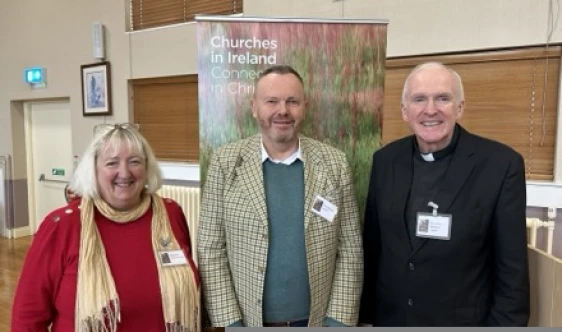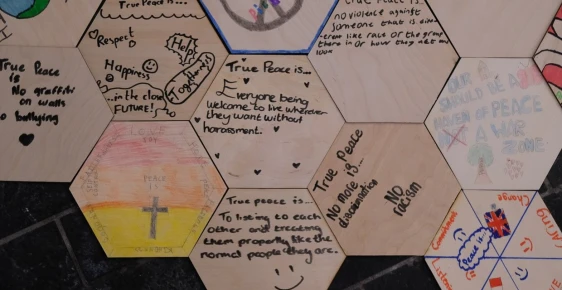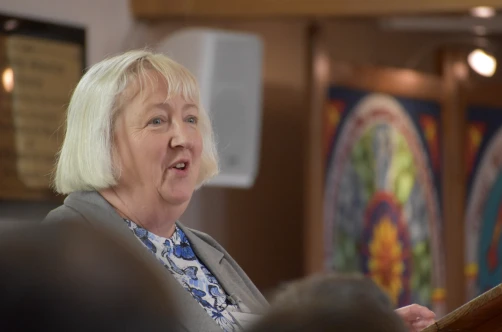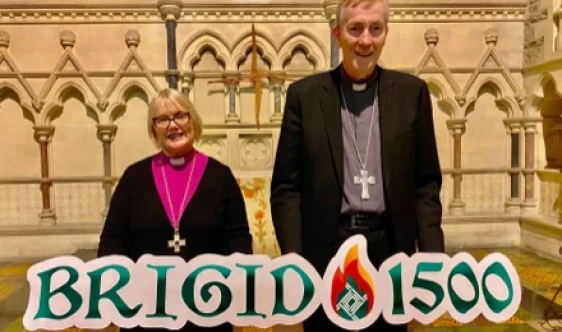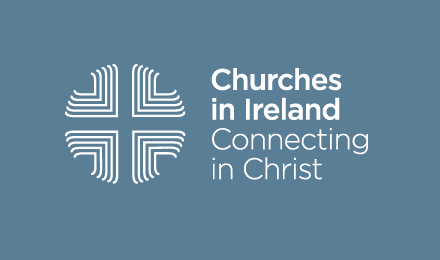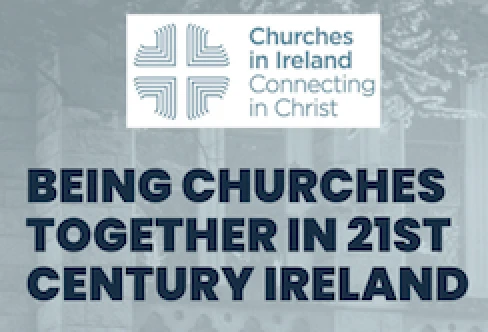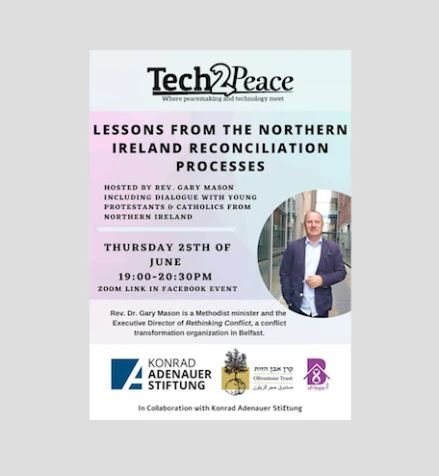
ICC staff participated in a webinar focusing on lessons from the Northern Ireland reconciliation process with an audience from Israel, Palestine and Northern Ireland.
The event was organised by Tech2Peace and hosted by Rev Dr Gary Mason. Deputy Ambassador of Ireland in Israel, James O’Shea, was also present. Tech2Peace is an initiative combining technology and peace-building seminars, focused on establishing positive relationships between young Israelis and Palestinians.
With the freedom technology provides, there were over 60 people engaged in dialogue from across the world. The event began with a brief history of Northern Ireland giving the context of the Troubles and Good Friday Agreement. The focus was set on three particular topics — political leadership in conflict areas, role of civil society and non-violence.
Dr Mason discussed these topics with all participants before we moved to smaller groups of six people. Within these groups, the relational aspect that Tech2Peace promotes was evident in the sharing of personal stories of barriers to conflict resolution from Northern Ireland, Israel and Palestine.
Whilst addressing the role of political leadership in conflict it was noted that political leadership is essential to achieving peace. It is important that leaders on all sides of the conflict believe that change is preferable to the status quo and then be willing to take the risks to achieve peace. Dr Mason shared that a desire to break the cycle of violence to save future generations from continued conflict emerged in both republican and unionist communities in Northern Ireland and played an important role in creating an environment for peace. This desire for a better future encouraged leaders to take risks for peace amidst accusations of betrayal from within their own communities.
After sharing in our breakout rooms, we came back together as a group and thought about the role of civil society in conflict resolution. Emphasis was placed on the role of trust. A lack of trust between opposing sides is an inevitable feature of building peace. Participants agreed that trust will not be present at the start of the process, but through dialogue and building confidence through concrete actions it will start to grow. While Northern Ireland has made great progress numerous challenges remain, including overcoming the legacies of the past. Civil society can play an important role in paving the way to build a more positive shared future.
Within the next small group session, a focus on the importance of trust was discussed and participants thought about the question ‘how do we begin to build trust through community leadership?’ From this, the example of public friendship was discussed while overcoming the obstacle of building trust without being thought of as betraying one's own community. Great insight was taken from all participants as they shared their own stories from where they were coming from.
The webinar finished with a brief look at non-violence and how to convince communities that there can be other answers to their need for security. Dr Mason drew participants’ attention to how attempts to resolve the conflict in Northern Ireland through military force did not result in sustainable security for either community. Bringing this webinar in full circle, Dr Mason shared that security was only achieved when dialogue was prioritised and the root causes of the conflict were addressed, allowing all communities to explore their shared future in Northern Ireland.
Uri Rosenburg, Co-Founder of Tech2Peace, noted that
"Israelis, and to some extent - also Palestinians, sometimes feel misunderstood by Europeans. Most Western Europeans have lived since 1945 in peace, and have heard about troubles, wars and ethnic conflict only from their grandparents and history lessons. To meet with Northern Irish people was very touching for our team. Israelis and Palestinians felt listened to, understood, not judged. The Northern Irish participants were empathic to our stories, and gave us a feeling that they understand why it's hard for us to solve our conflict. They gave us insight from their conflict, how it was solved - both from the outside and from brave community leaders within. It was an inspiring meeting for us in Israel and Palestine. It showed us that we're not alone in our frustration and pain, but also that even what was seen just a few decades ago as the most violent and impossible-to-solve conflict in the world (and definitely in the Western world) - is solvable. The N. Irish Good Friday Agreement was not perfect. No side got 100% what they wanted. And that's the beauty of it. We learned that compromise is really important. And if they could eventually do it - so can we.”
Mohammed, a participant in the webinar, shared that
“as a Palestinian born and raised in the West Bank it has been inspiring to meet the Northern Irish people who feel they can make a difference in the world, particularly in the Israeli-Palestinian conflict. Listening to examples from the European history has taught me to see things from different perspectives, personally I believe networking with diverse groups bridges all divides and improves solving the conflict of any kind.”
Reflecting on the webinar Dr Mason shared that
“while the Irish peace process is not the panacea for the world ills, there are significant lessons that are applicable to other situations. When we look at most conflicts they do have that toxic mix of land, identity and religion. We all know how we wrestled and continue to wrestle with those concepts in the Irish context and the Middle East is no different.”
